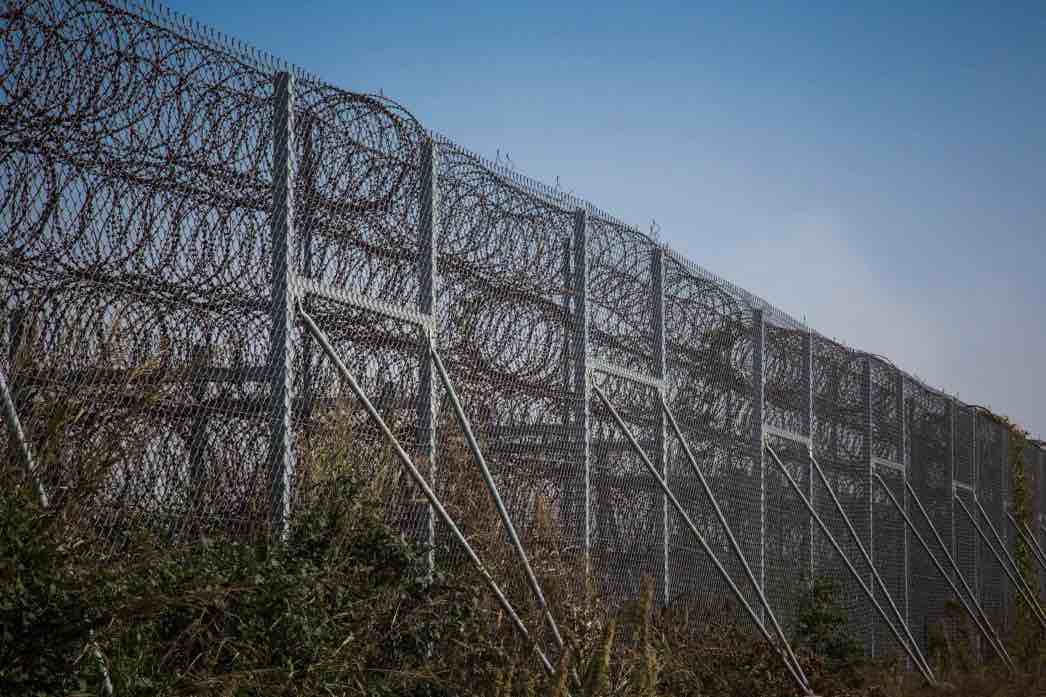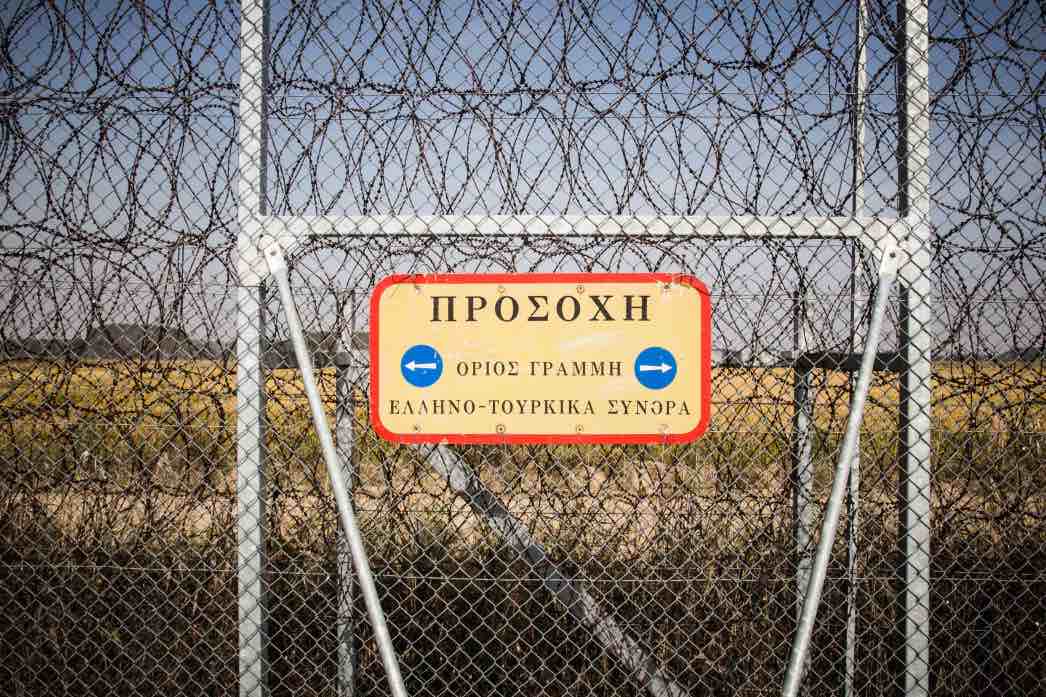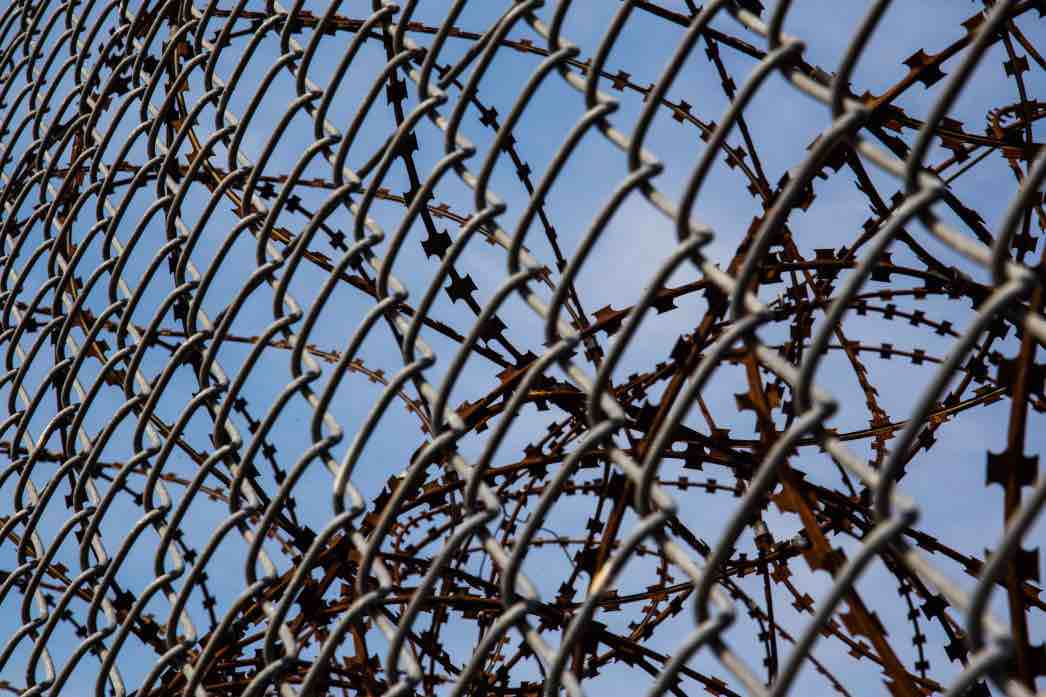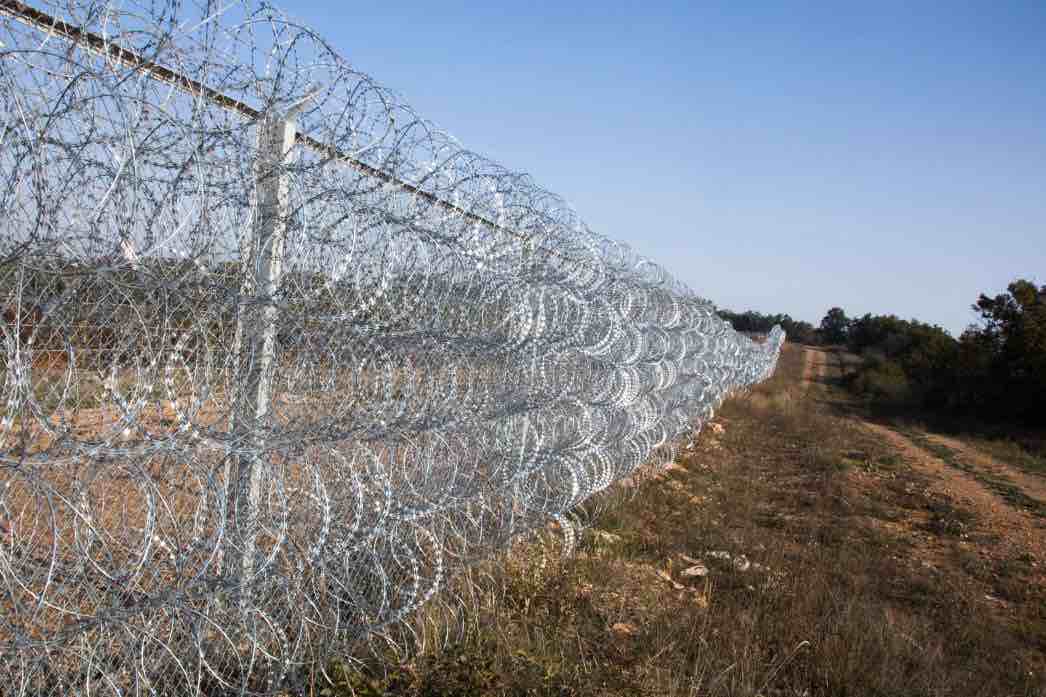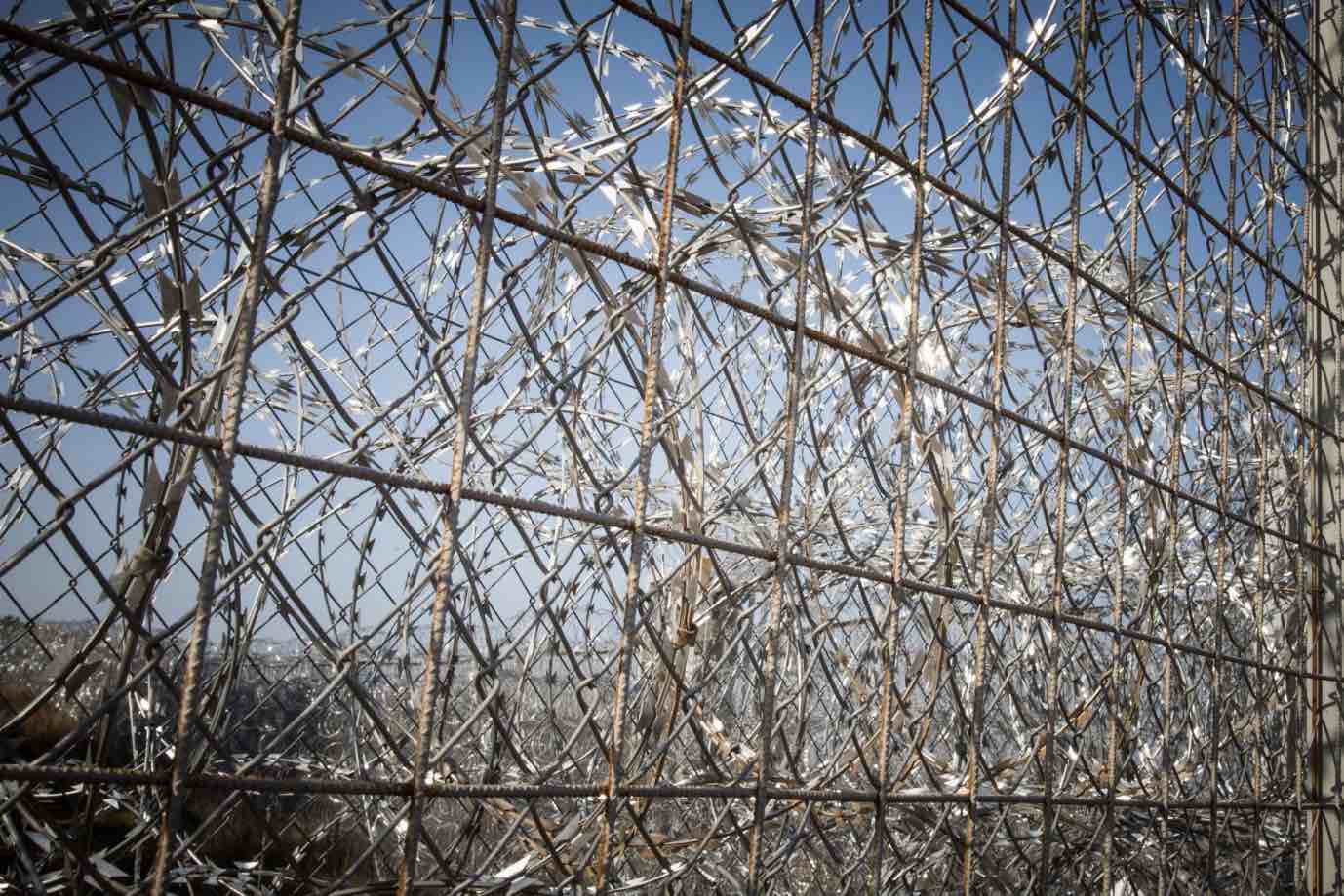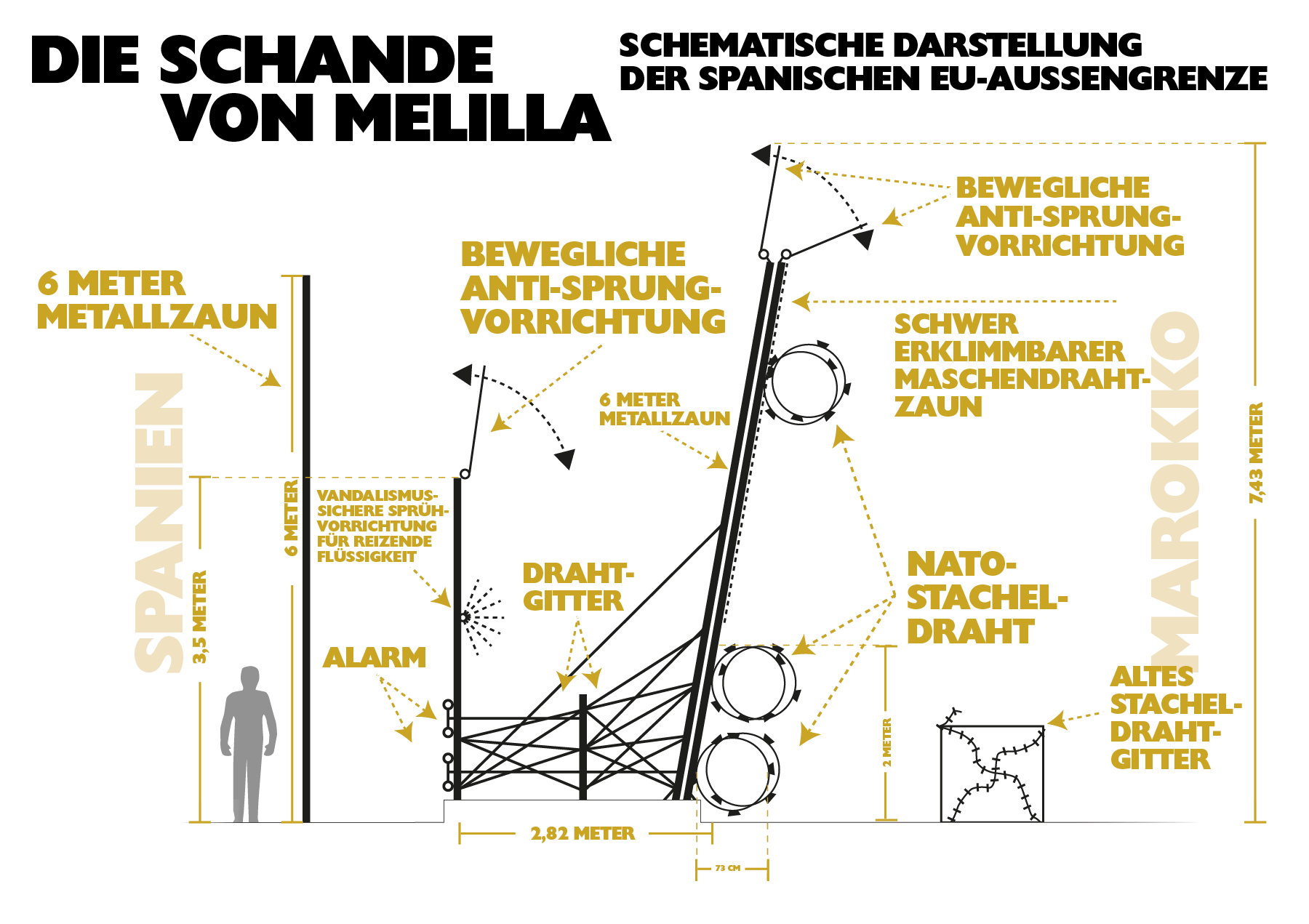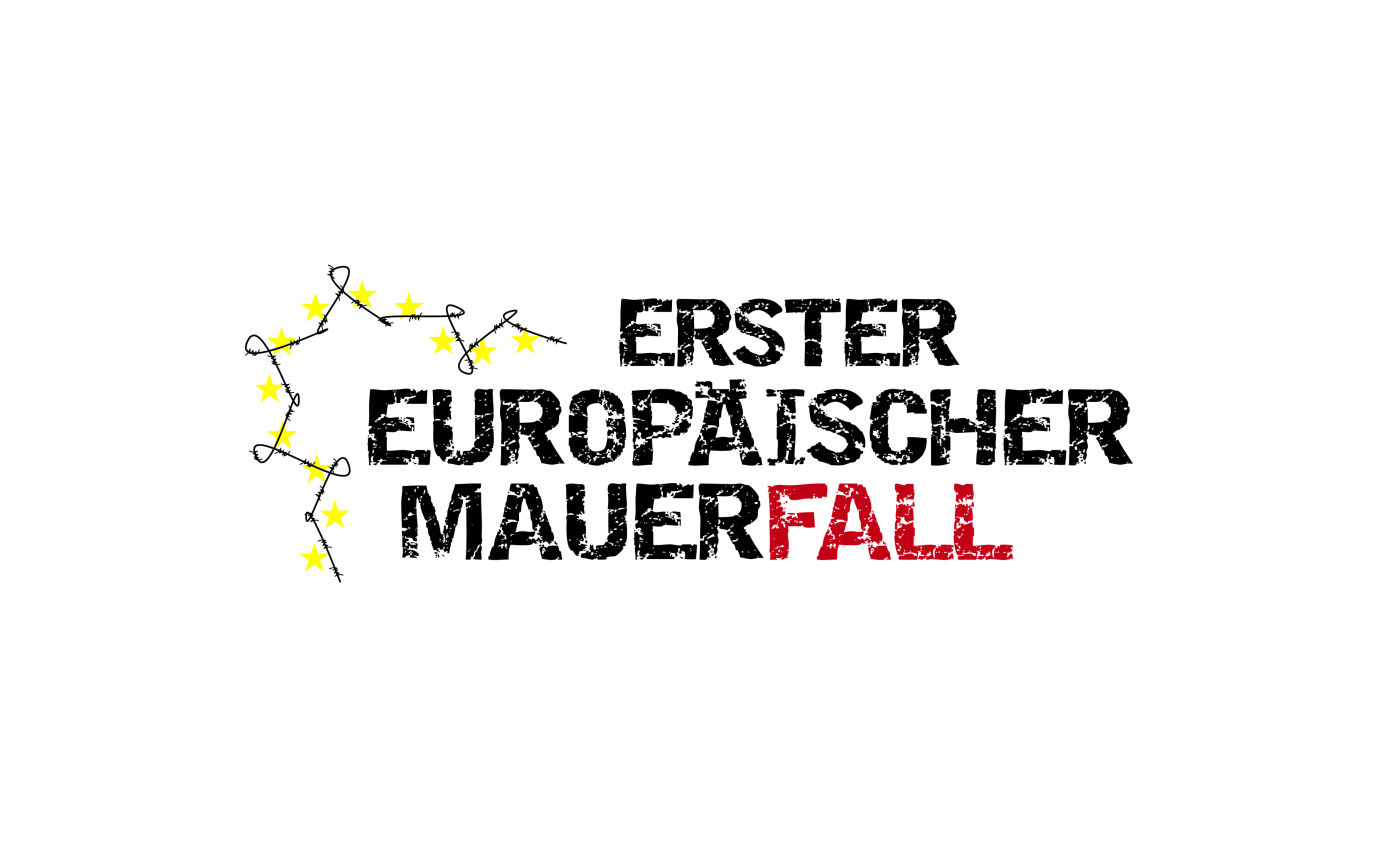

The art installation of »white crosses« collectively left the city’s government quarters to escape the commemoration festivities for the fall of the Berlin wall’s 25th anniversary. In an act of solidarity, the victims fled to their brothers and sisters across the European Union’s external borders, more precisely, to the future victims of the wall. Since the fall of the iron curtain, the EU’s border has taken 30,000 lives.
The front of the picture shows the iron curtain. Behind it, the European Union is making room for the newest generation of surveillance technology. On the ground behind the white cross is a camera pole which will detect refugees as part of Eurosur and report them to the local police.
The crosses escaped the Oktoberfest-like commemoration ceremonies in order to be with those whose lives are put at risk by the EU’s external wall. In doing so, they expanded the self-involved German tradition of commemorating by one decisive factor: the present. Below are pictures taken in the woods of Gourougou near Melilla.
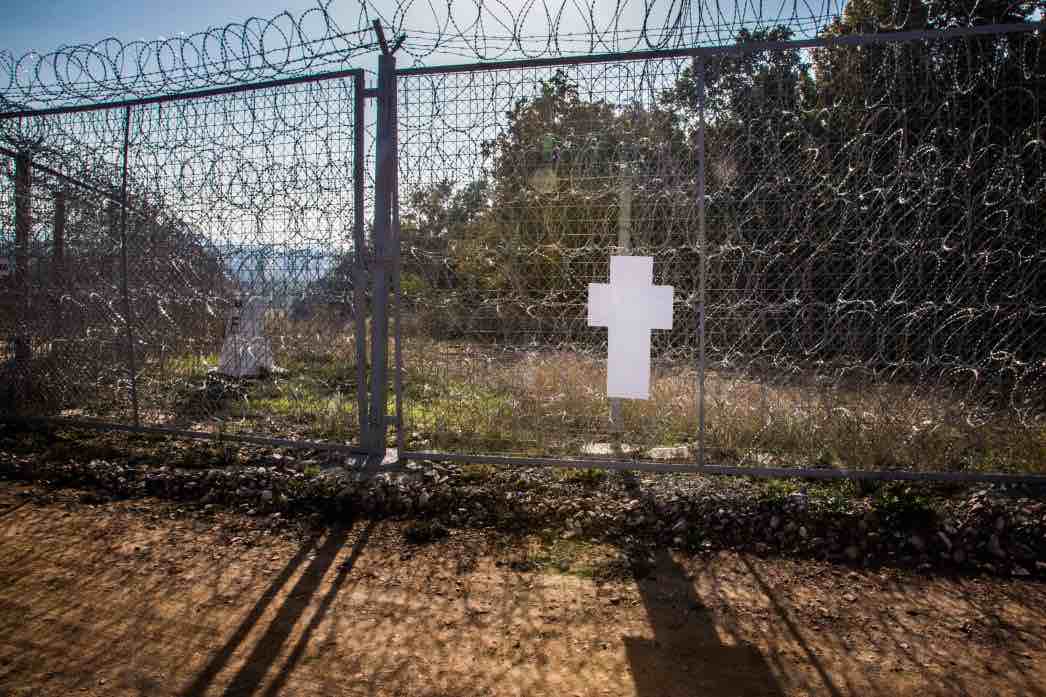
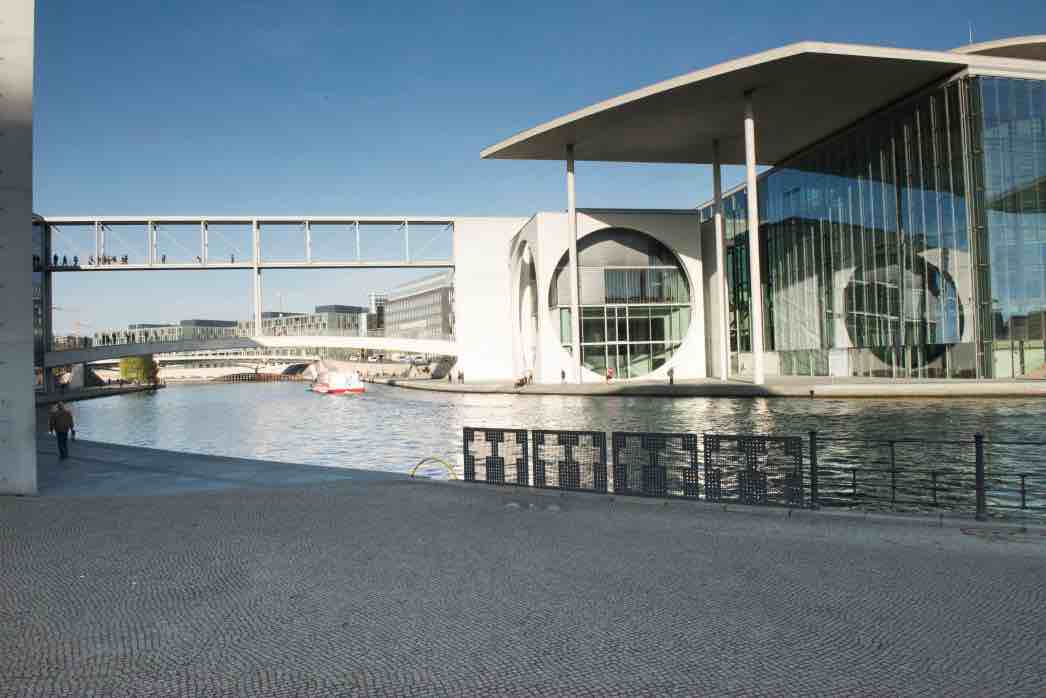
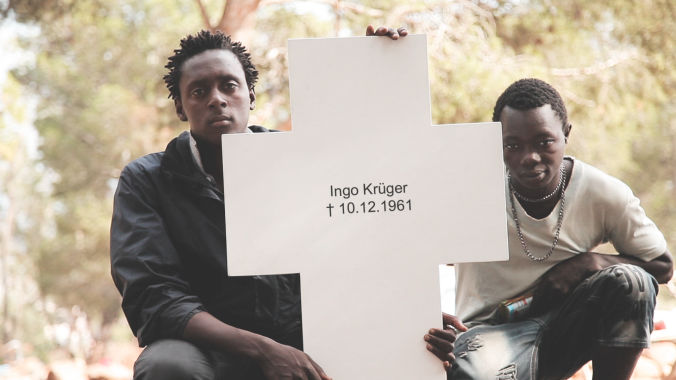
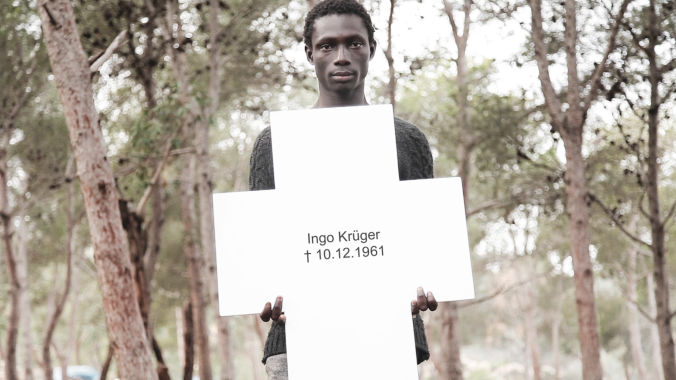
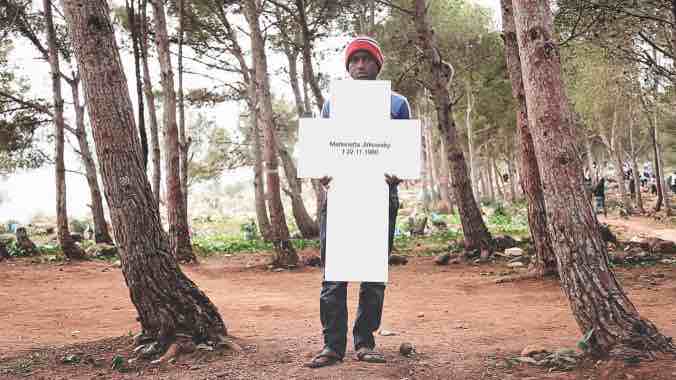
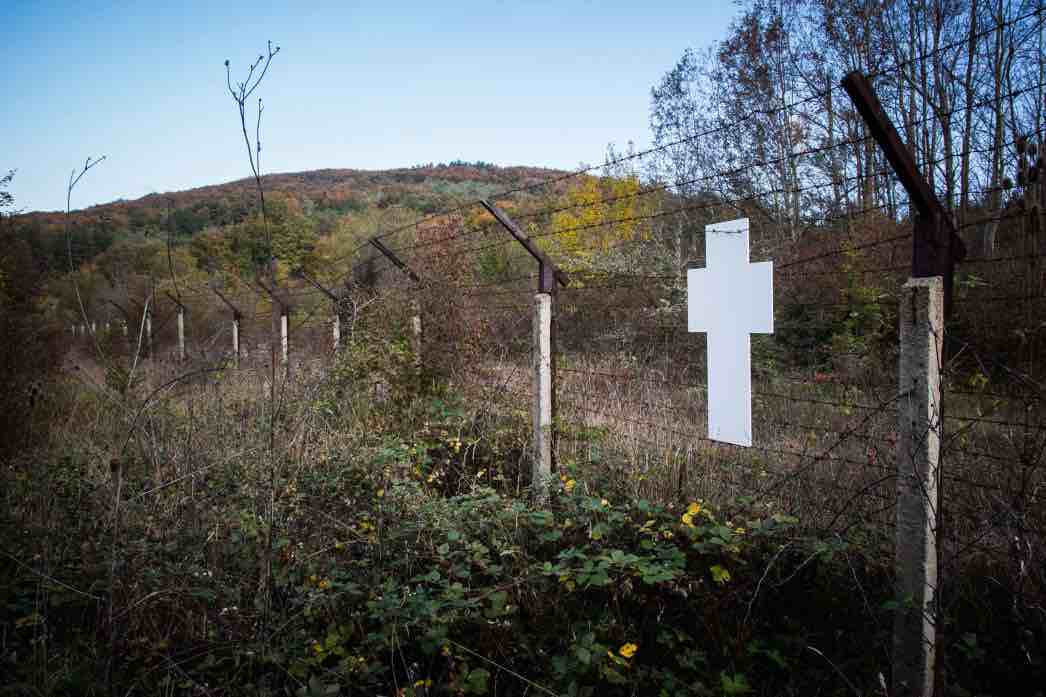
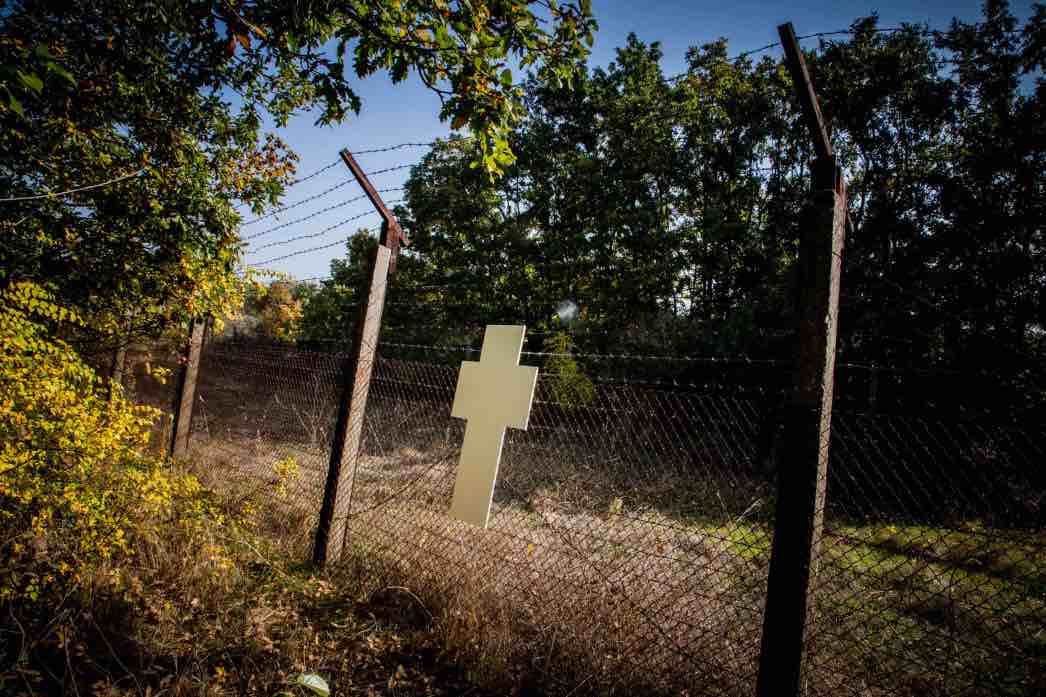
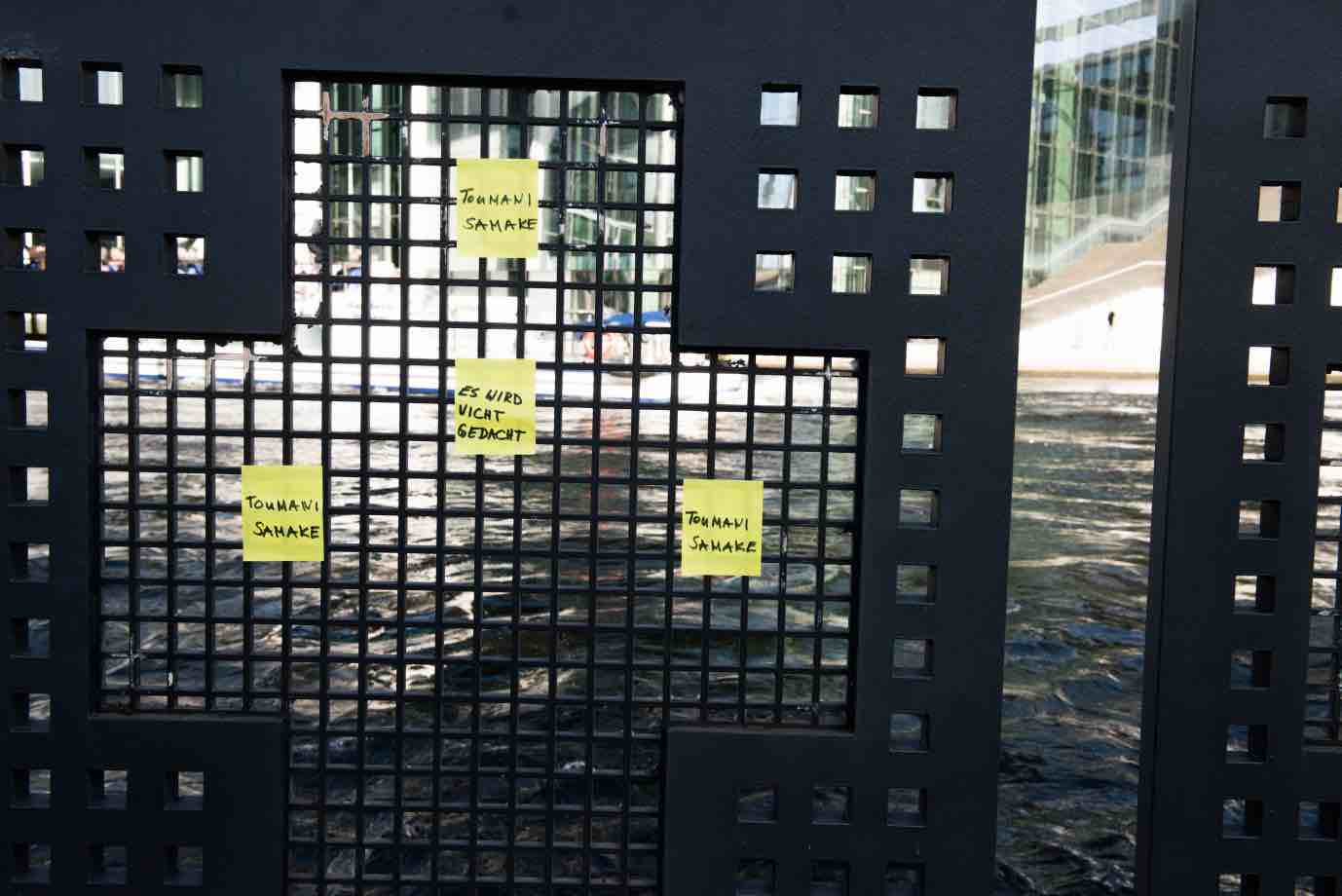
»A despicable campaign!«

»This so-called art campaign is in reality absolutely tasteless and stupid.«

»A severe case of aggravated theft.«

»This campaign is an absolute disgrace! On the important occasion of the fall of the Berlin wall, the German population discussed a totalitarian system that had existed here in this country. Putting these two things in the same context is a terrible thing to do.«

»Art is not a question of taste! It is cynical that the EU, also at the instigation of Germany, reduced the rescue operation for refugees in the Mediterranean.«

»The actual problem is not some scrupulous artists who do not conceal the fact that they want to destroy our open society. The problem is that the media and politicians let them do as they please.«

»This campaign shows no respect for the commemoration of the victims of the Berlin wall.«

»I can understand that every opportunity which draws attention to the plight on the EU’s external borders is seized.«

»It is unbelievable that a memorial is removed right in the government quarters without anyone noticing!«

»This campaign plays off courage and imagination against inhumanity and a bureaucratic lack of imagination. It connects the memories of the Berlin wall to today’s reality of refugees in despair throwing themselves against barricades and barbed wire fences. […] ›Being human did not count then, a valid passport was everything.‹ This description of a refugee’s fate is more up to date than ever on a European continent isolating itself from refugees and willingly accepting the death of people in need.«

»For quite some time there has been a distinctive longing for reality in theatre. In this campaign, art finds a feedback in reality so strong that one is reminded of Jelinek’s bon mot about Schlingensief who ›threw the facts at those in power as if he were throwing a cake into their face‹.«

»The fact that the Berlin Senator for the Interior and State Minister for Culture do not see the difference between crime and political art is not only laughable but forces one to say: Welcome to the GDR! When was the last time a Senator for the Interior threatened a theatre director? How do we call such systems where this happens?«

»White crosses were stolen with a heroic attitude and a pseudo-humanitarian justification that is right-out cynical.«

»Since the death of Christoph Schlingensief I have missed a strong provoking voice in the arts intervening into politics.«

»It is about the question which Europe we want to live in and with what walls and frontiers: in a humane or pseudo-humanitarian one. About whether we want to commemorate or continue to think.«

» [...] this is the dumbest nonsense produced by German theatre in recent years [...]. The reason behind all the noise around the artistic void is the notorious over-estimation of theatre people themselves. They constantly feel pressured into teaching the world about things that are completely out of their field of expertise.«

»This campaign is a contribution to our country’s self-education. It does not suggest that there are easy solutions. It rather highlights an unresolved conflict between moral claims and democratically chosen realpolitik that willingly accepts that people are dying.«

»The Council for the Arts would like to thank the Maxim Gorki Theatre and its Director Shermin Langhoff for supporting an art campaign which reminded us of the fact that celebrating and commemorating the 9 November 1989 is not all there is. […] An important lesson from that date is the freedom of the arts ensuring that politicians can never again be tempted to decide what they define as opportune and worthy of support just to illustrate their policies, while other forms of art are suppressed or prosecuted by state security as is currently the case of the Center for Political Beauty.«

»In terms of freedom of the arts and culture, this project raises no objections. […] It is honorable to point out the current situation of refugees on the occasion of 9 November.«

»This is not the same thing. The fall of the wall is a completed historic event. Of course you can talk about borders and Frontex fences- but not like that.«

»This isn‘t art! It doesn’t have anything to do with art because it is not thought through in the least.«

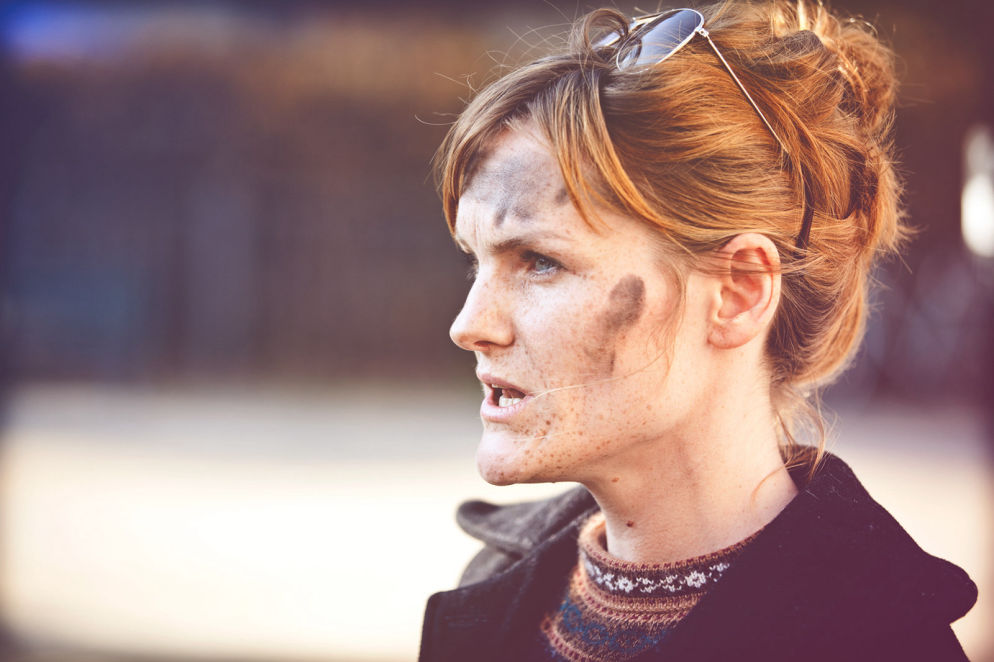
»Since we sent out a press release on the campaign on Monday, the whole of Germany is getting worked up over the disappearance of 14 – albeit large and important - symbols. In the meantime, the death of 24 refugees on a boat near Istanbul was only worth a tiny notice. Our campaign is on Germany’s front pages. This reveals the true face of German society. Every society only mourns its own victims. As soon as you’re from somewhere else, people don’t really think about you. We can only fully pay tribute to those who died at the Berlin wall if we also think about the new victims.«
Cesy Leonard, Chief of Planning Staff
The death strip of Melilla puts their lives at risk (see arm bandage and head wound). The white crosses fled to the Moroccan woods to be with them.
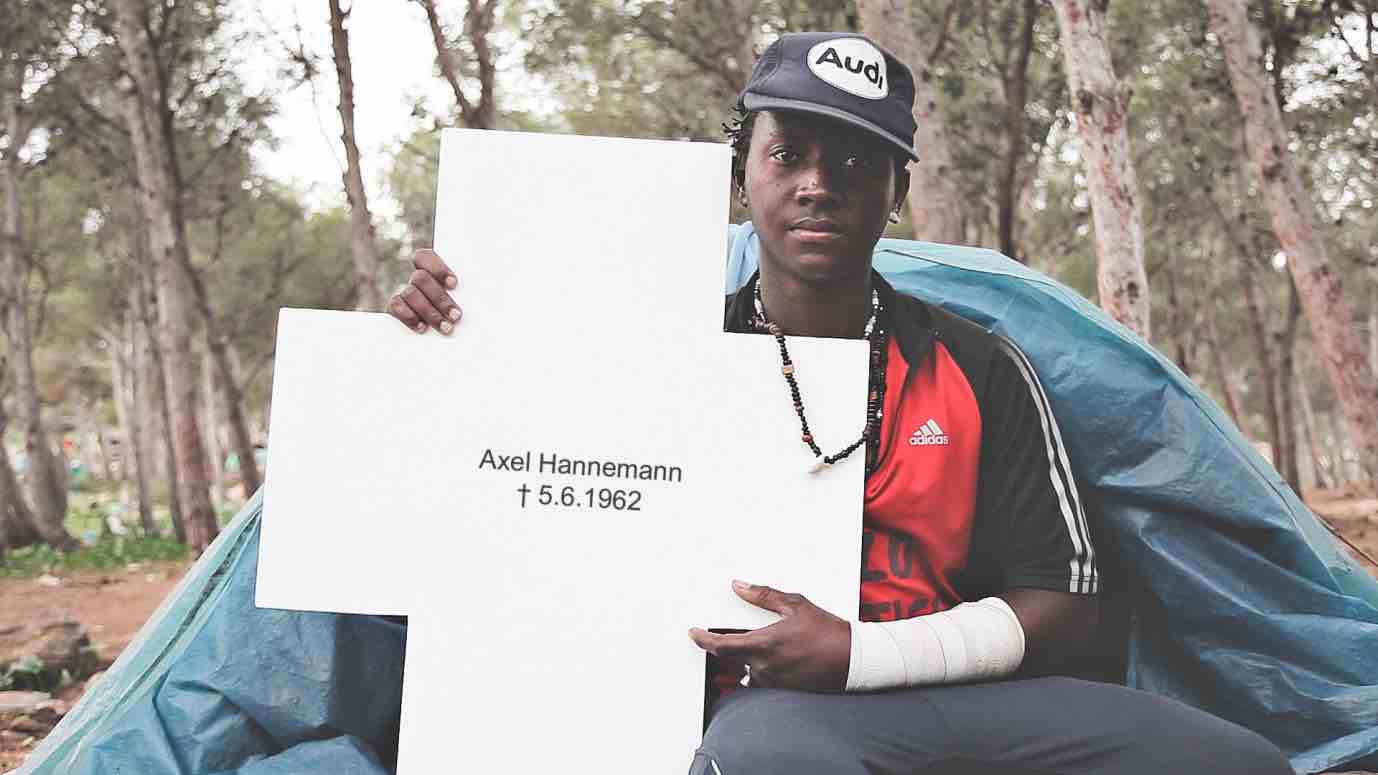
The new European barbed wire fences are unacceptable. While the official commemoration cartel was preparing for the 25th anniversary of the fall of the Berlin wall, 100 people resolutely approached the EU’s external border in order to tear it down. Two buses drove 100 peaceful revolutionaries with bolt cutters and electric angle grinders to Bulgaria’s »containment facility« to make unmistakably clear that: we do not accept the breach of international law.
While Berlin’s politicians sent balloons up into the air listening to nostalgic and sedating speeches in an Oktoberfest-like ceremony, German citizens tried to tear down the EU’s illegal external borders in an act of political beauty and take a piece of the fence back home with them. This was preceded by one of Germany’s most successful crowd-funding campaigns which collected EUR 39,000 in a record time of only 5 days for buses and hotel accommodation for the second peaceful revolution.
The European Union’s external border is defended at Gorki Theatre- Germany’s Theatre of the Year 2014: Upon departure, the Federal Police and the Federal Criminal Police Office surrounded the theatre with more than 100 officers. The reason: »You are calling for the commitment of severe crimes. We must therefore initiate measures to avert potential danger!« The police are looking for bolt cutters. Nonetheless, the spectators are free to go on one of the »world’s longest stages« (as opening performance of the Voicing Resistance Festival) to tear down a new wall 25 years after the first one.

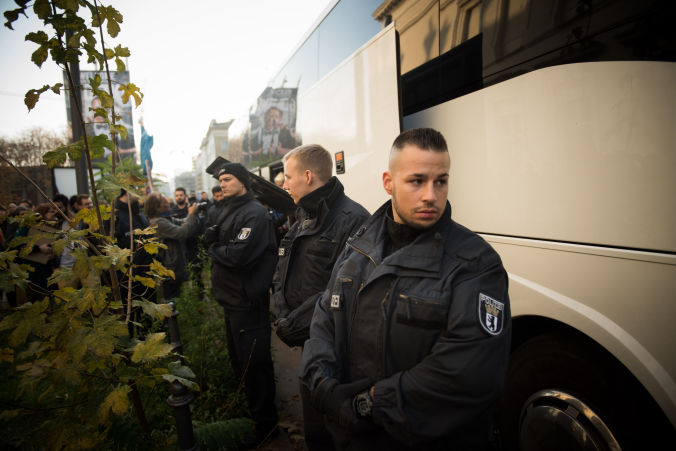
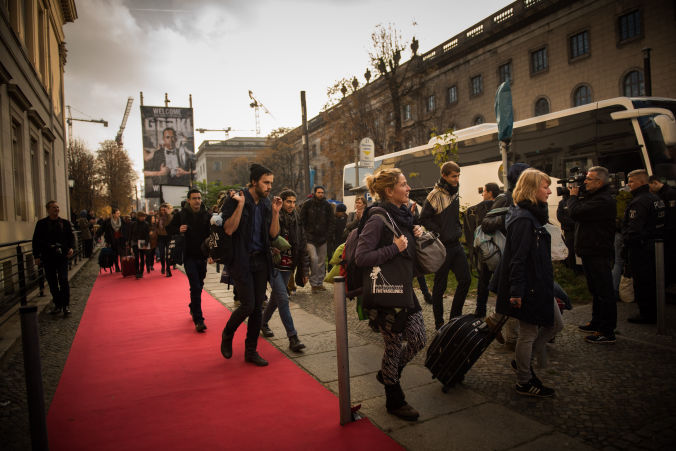
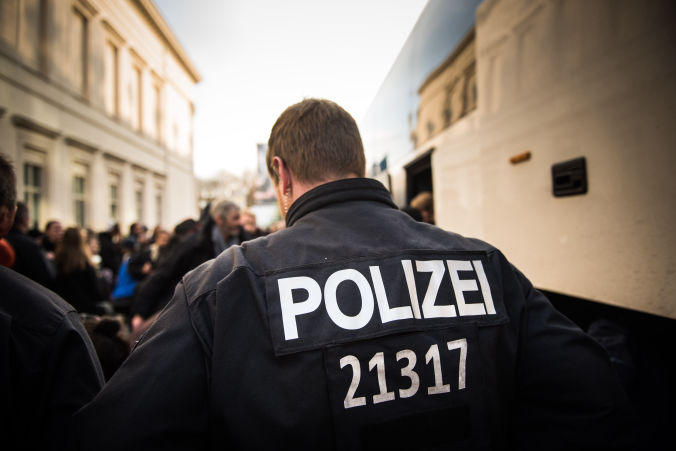
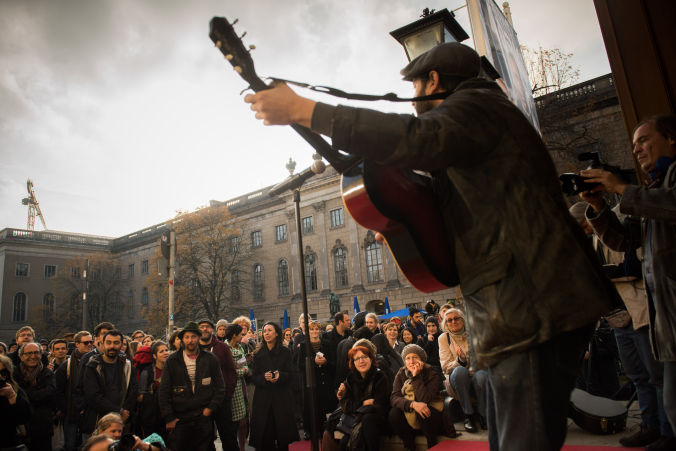

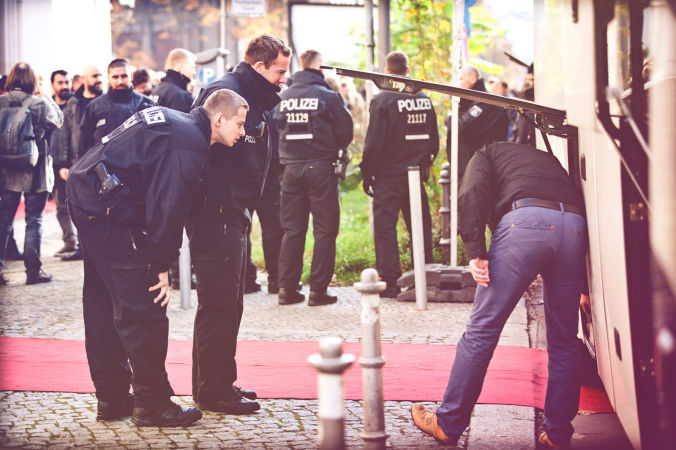
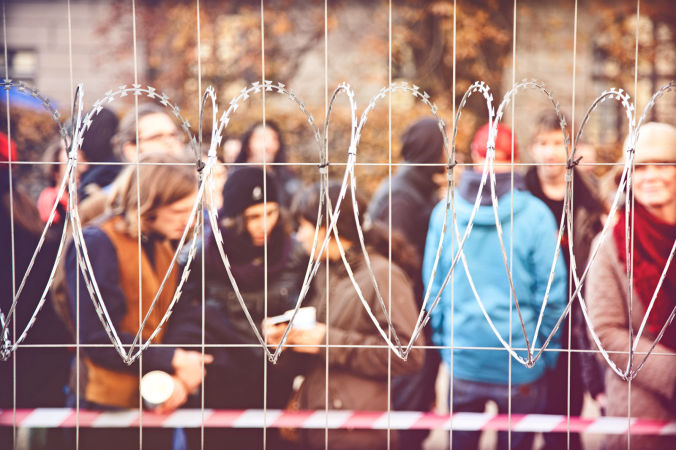
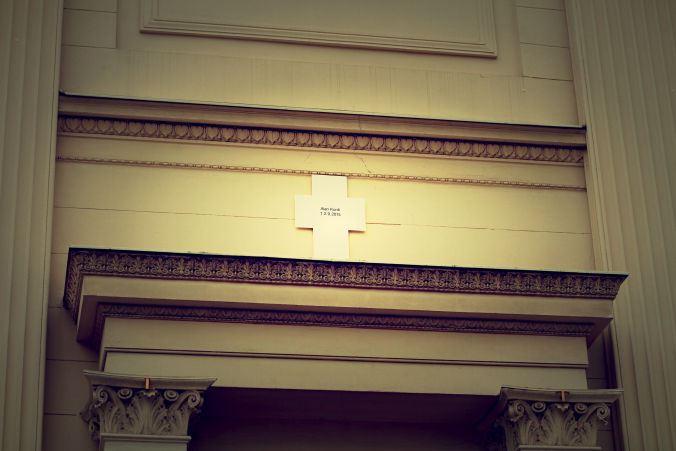
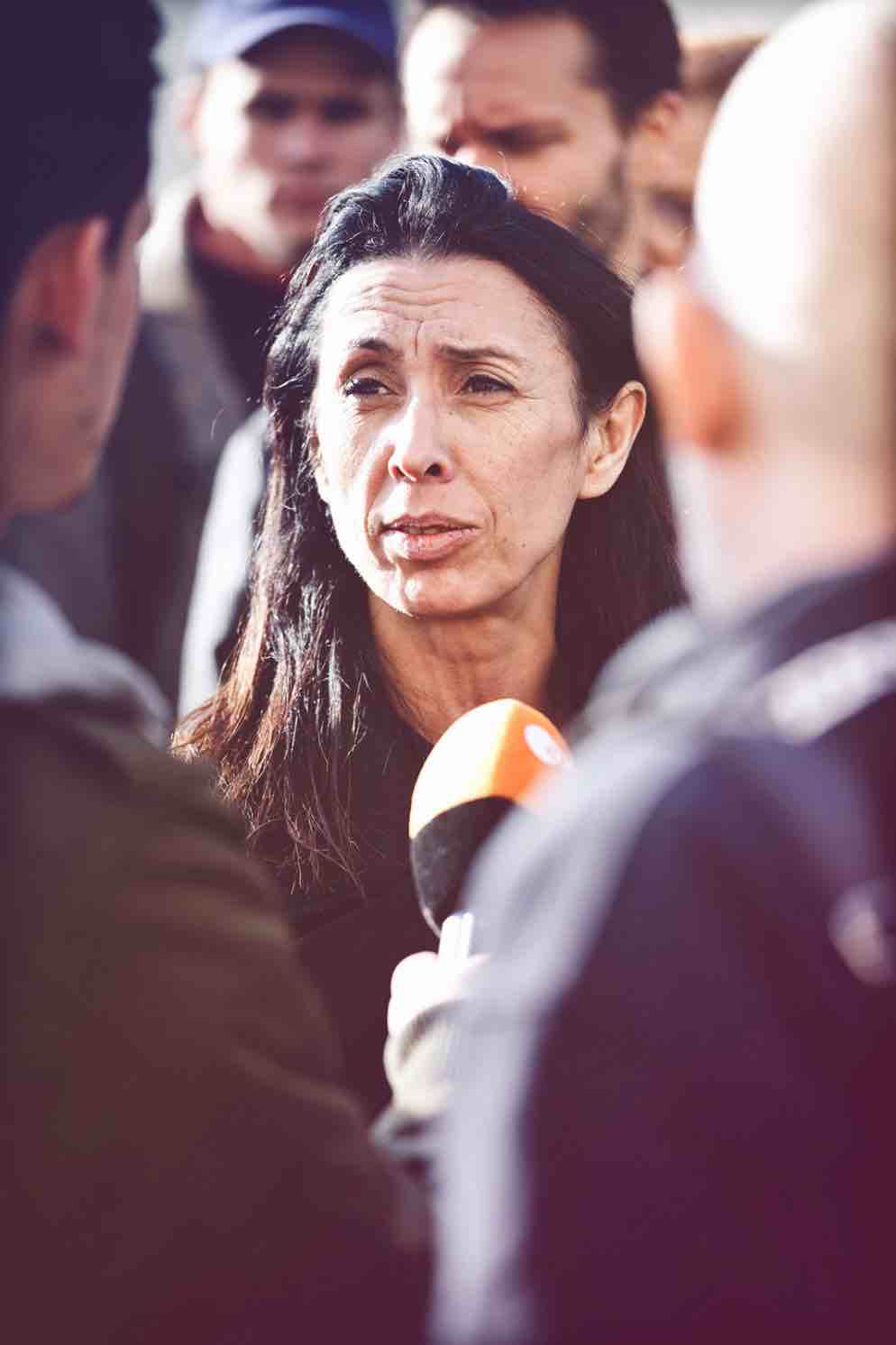
»When the wall came down 25 years ago, this was not the result of clever strategic moves by professional politicians. Rather, it was the awakening of civil society. I have thought for a long time that this country’s simple sense of citizenship had died out. Over the last few days, however, the Center for Political Beauty demonstrated that this sense of citizenship can be awakened. History is not a quiet place. History must agitate us and weigh us down. After all, commemorating involves thinking. [...] There was much debate on unacceptable comparisons and declarations that one (history) had nothing to do with the other (the present). It would be a disaster if that were true. – There is a reflex in politics not to see something as art once it goes beyond the limits of the traditional concept of art calling it insane or even criminal. This worries me. […] There is a rather unfriendly German saying: ›Go with God but go‹. I would say: go with whomever so that others can come without having to risk their lives.«
Shermin Langhoff, Director, Gorki Theatre


Björn Höcke has praised the Center for Political Beauty as a »terrorist group«. Get close to the action and become an accomplice to a terrorist organization so far sadly recognized only by Höcke, Erdogan, and the Free State of Thuringia! As an accomplice you will make an invaluable contribution to inciting public unrest in the service of aggressive humanism. Nowhere else will you receive more unrest and dissent for every donated Euro.

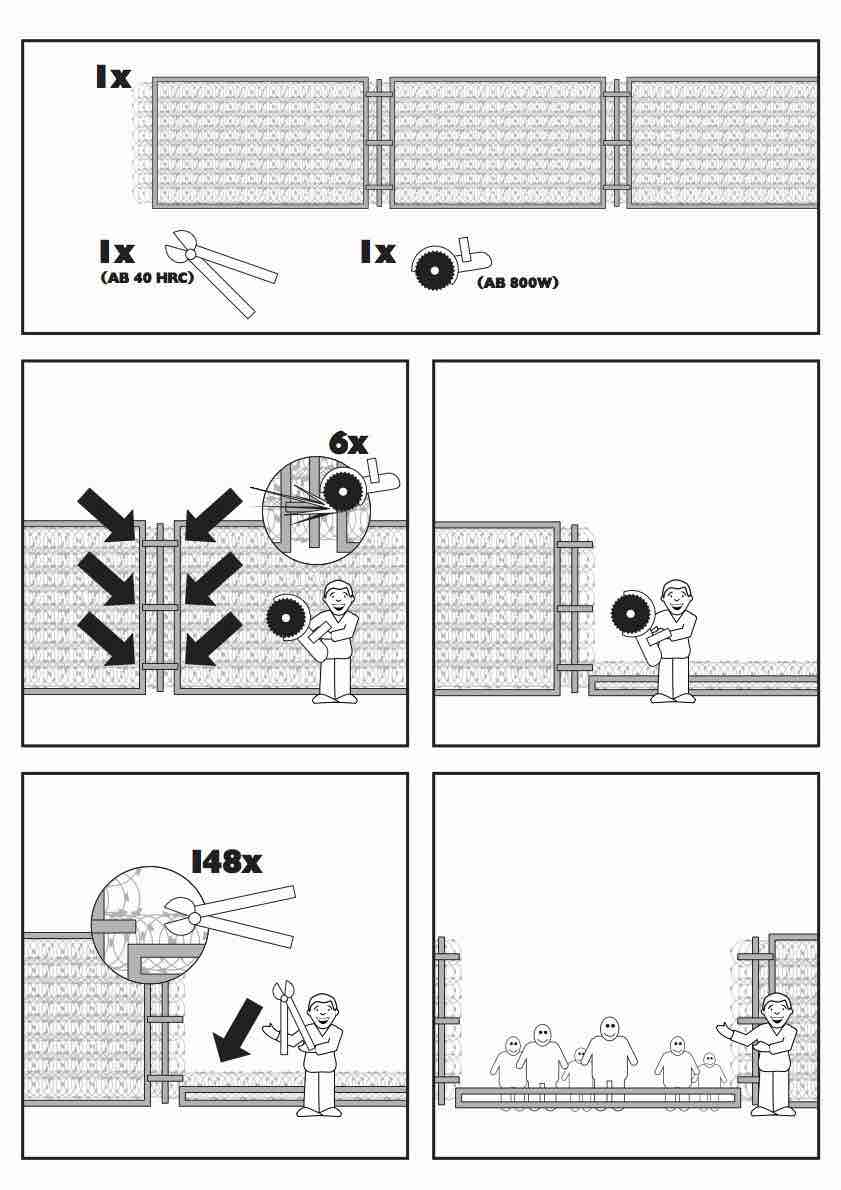
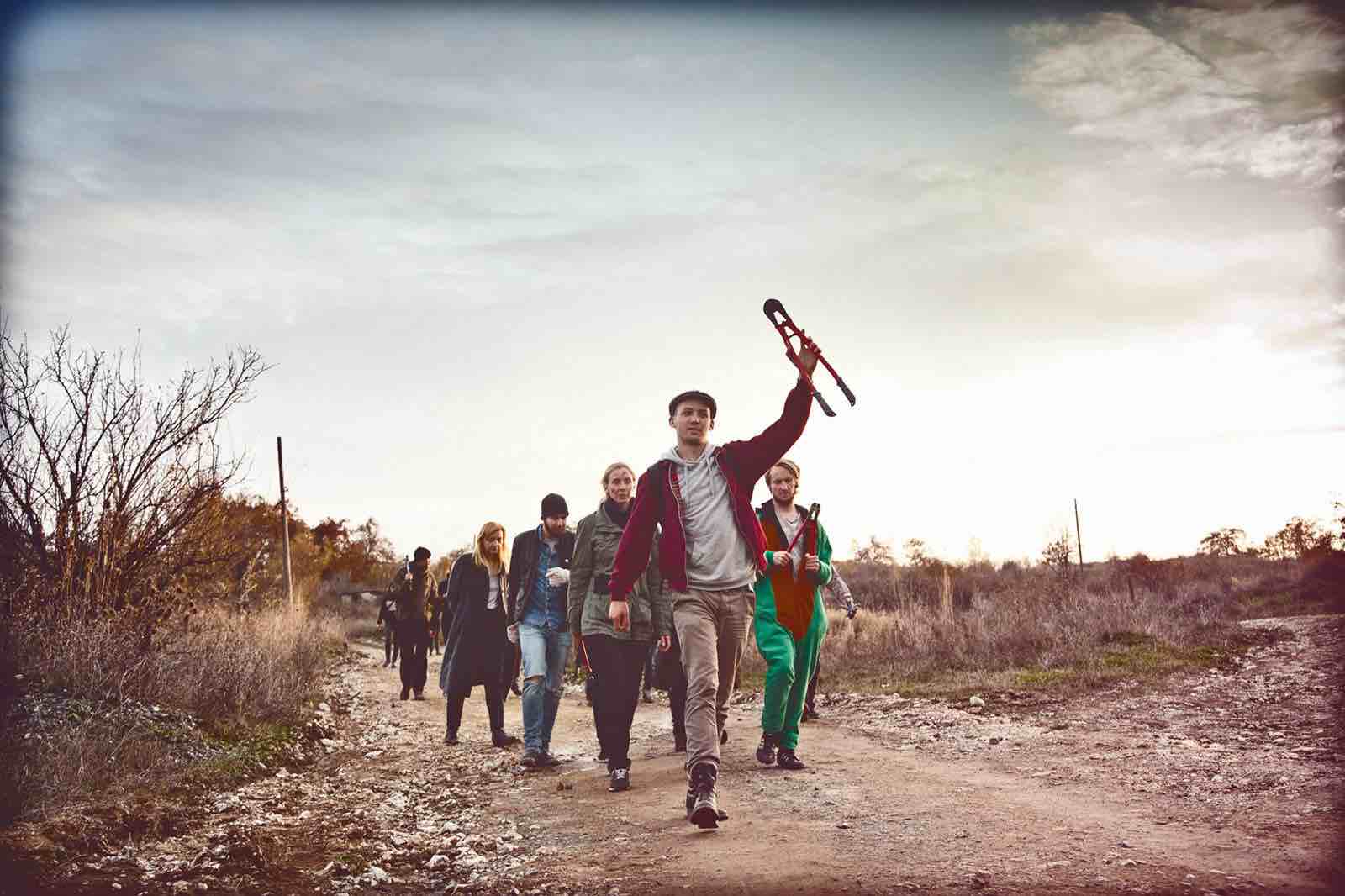
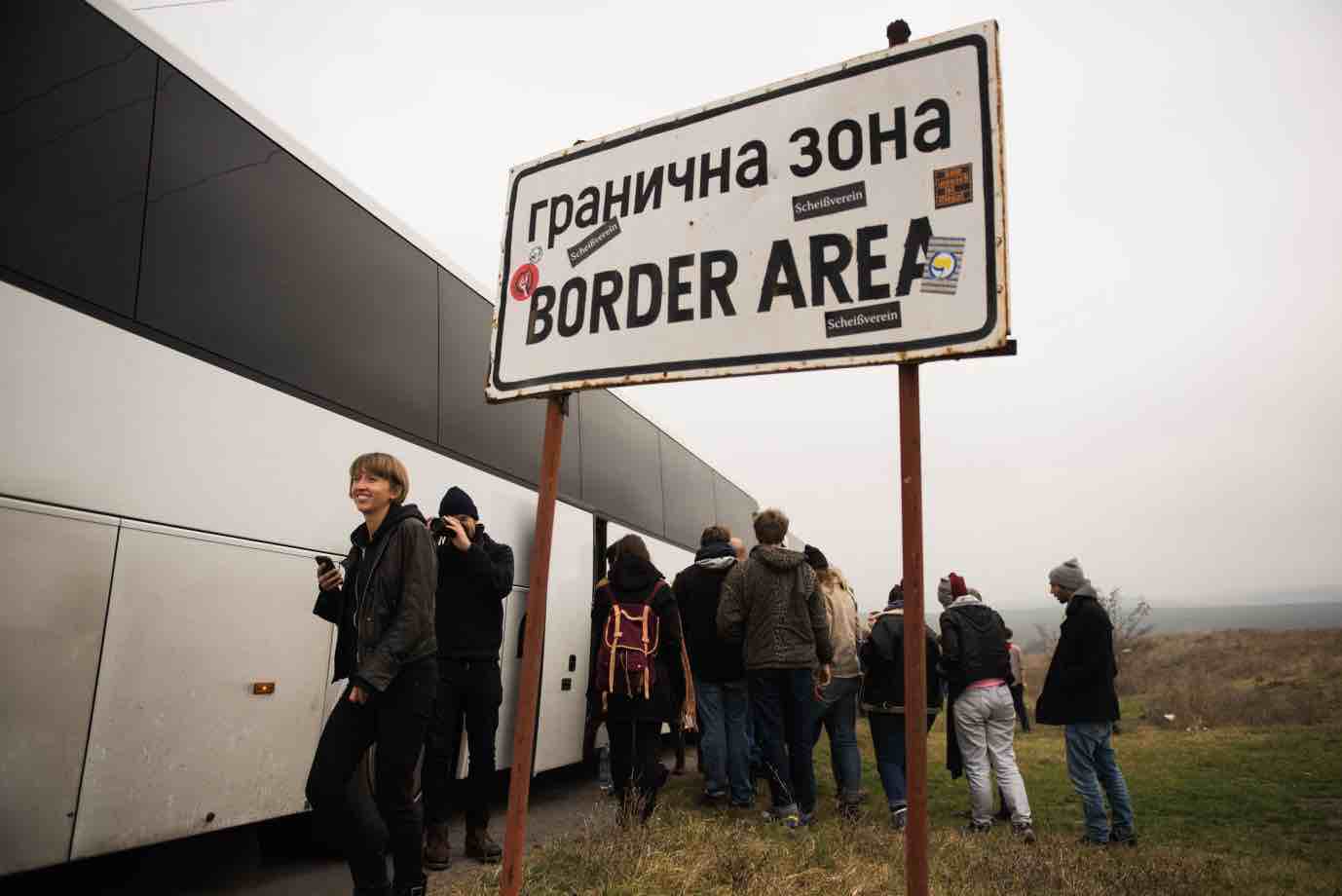
Europe-wide border protection – on the 25th anniversary of the fall of the Berlin wall! The revolutionaries’ freedom is massively obstructed at all the borders they pass. The buses are searched and in Serbia, Bulgaria and Greece the police escorts them through the country. In Greece, four buses filled with riot police receive the revolutionaries having waited at the border for several days.
Two German MPs ask the German parliament in writing about the background to the fast repression against a theatre play. The responses show that the Federal Ministry of the Interior informed six countries (including Kosovo) and the Federal Criminal Police Office of the theatre campaign.
A country in a state of emergency: Bulgaria’s Minister of the Interior links his political fate to the pledge that the EU’s illegal external border will not be removed and orders 5,000 police officers (Sofia’s riot police) to the region in order to protect the wall.
On the right, a member of the Bulgarian Ministry of the Interior explains the legal consequences of opening the wall: illegal border trespassing is punished with up to 5 years in prison or a fine of EUR 150. The revolutionaries are amused and ask: »Okay: but seeing as we’re 100 people we’re getting a discount, right?«
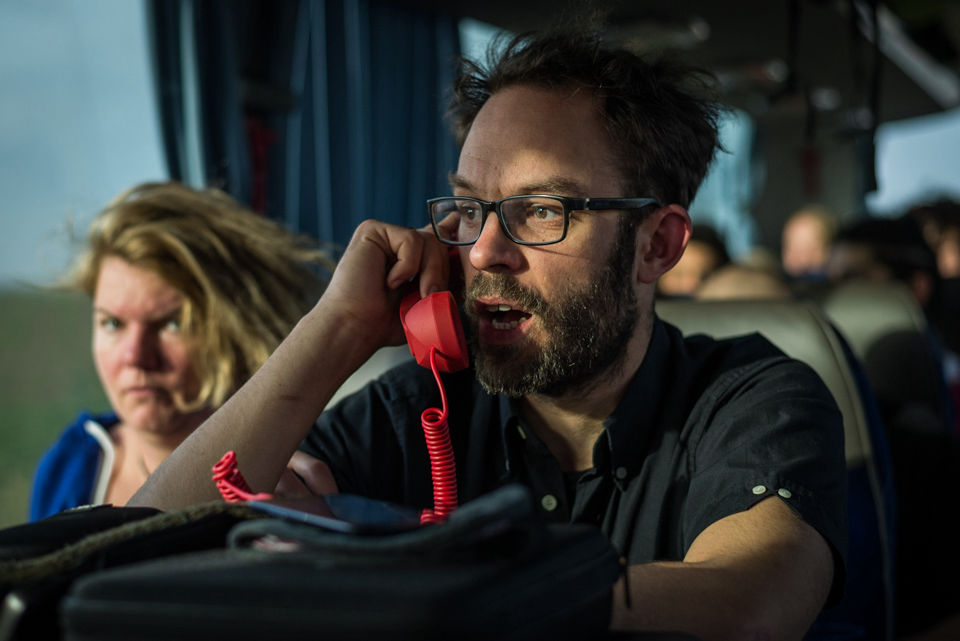
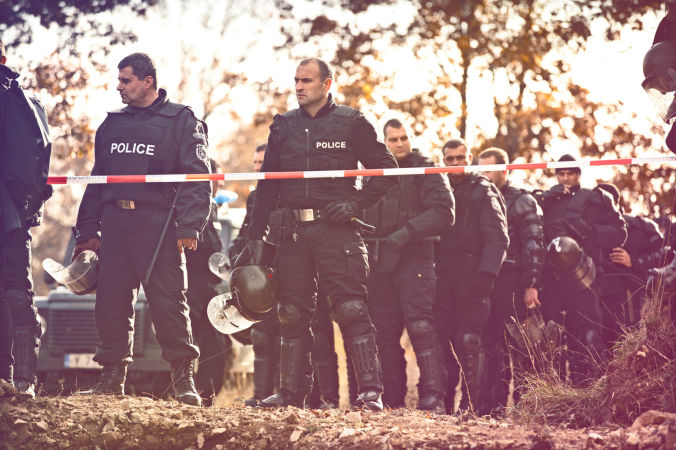
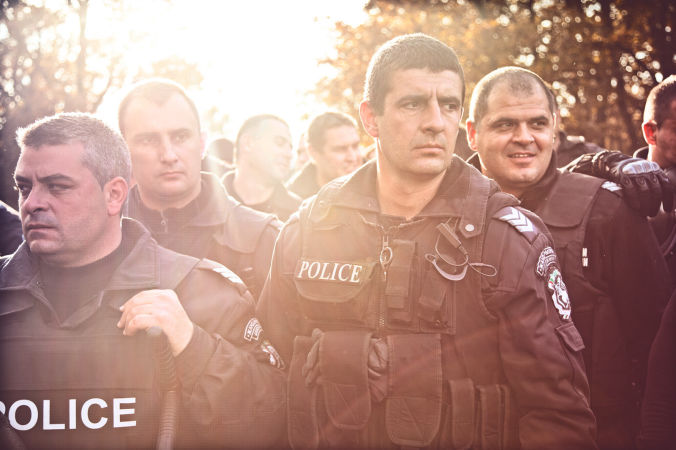
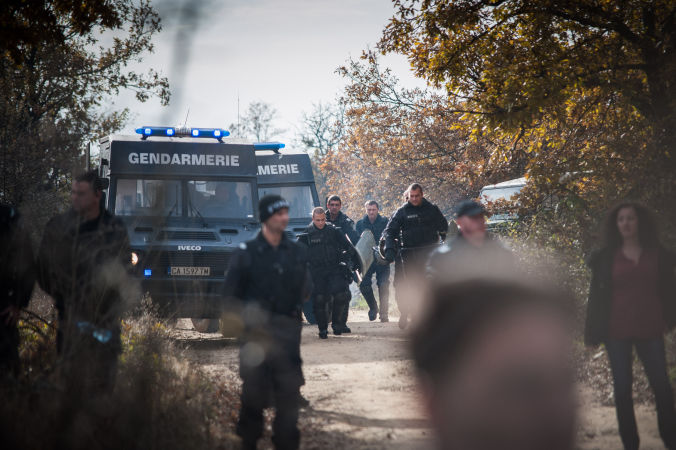
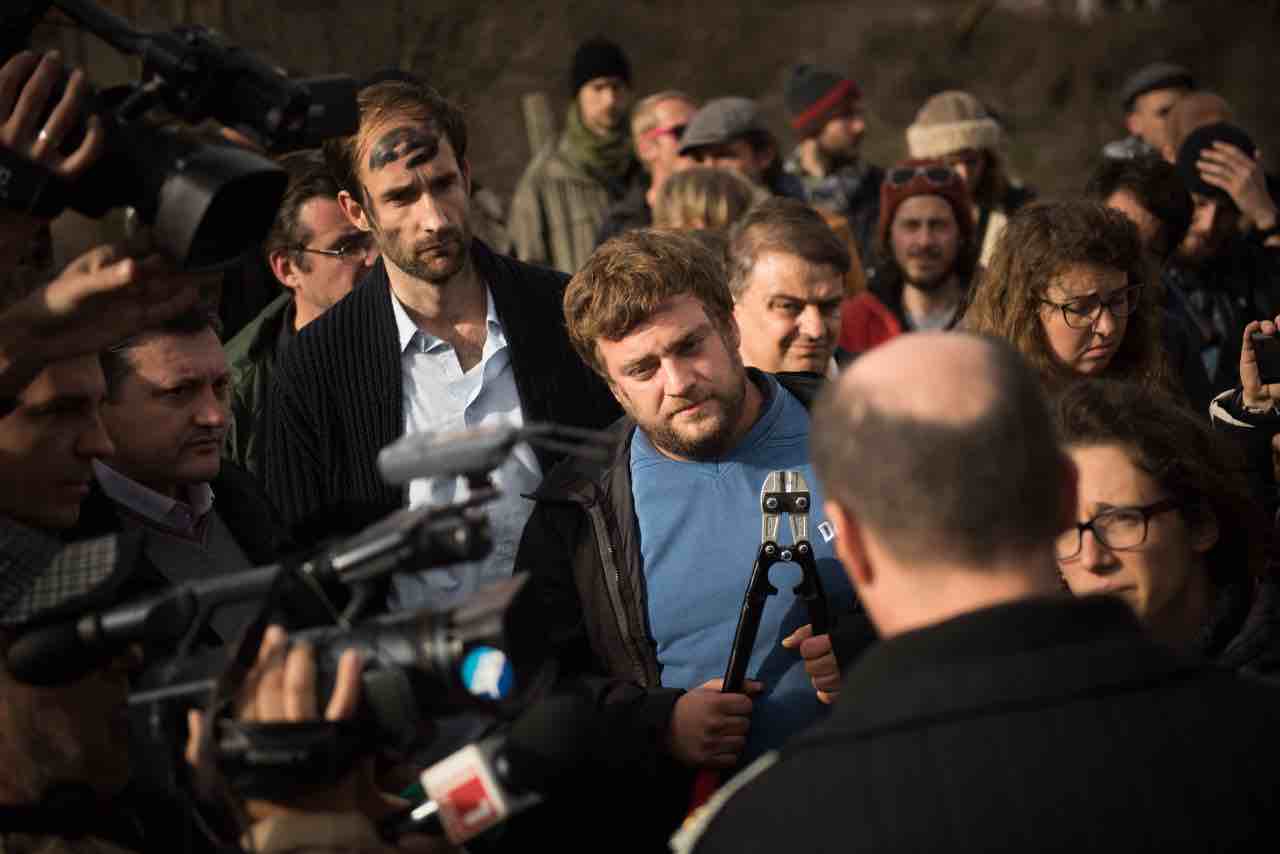
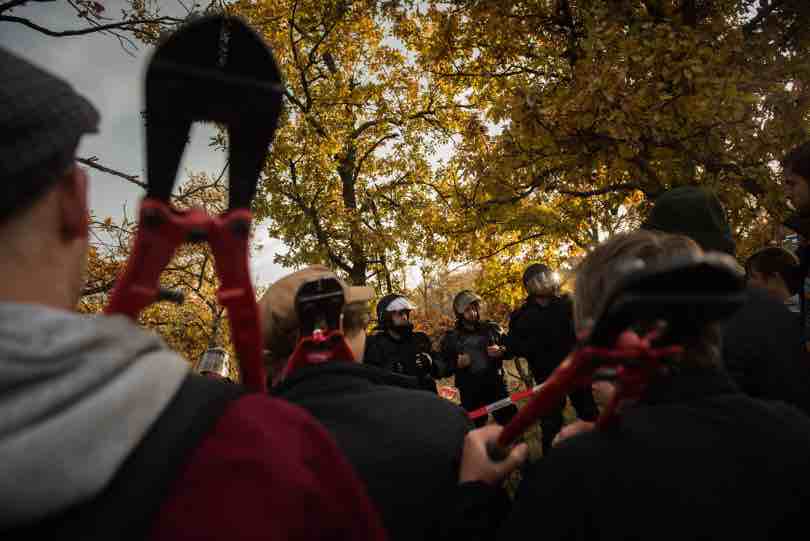
Tough negotiations with the supreme border guard, the Director of the Border Police who came especially from Sofia.
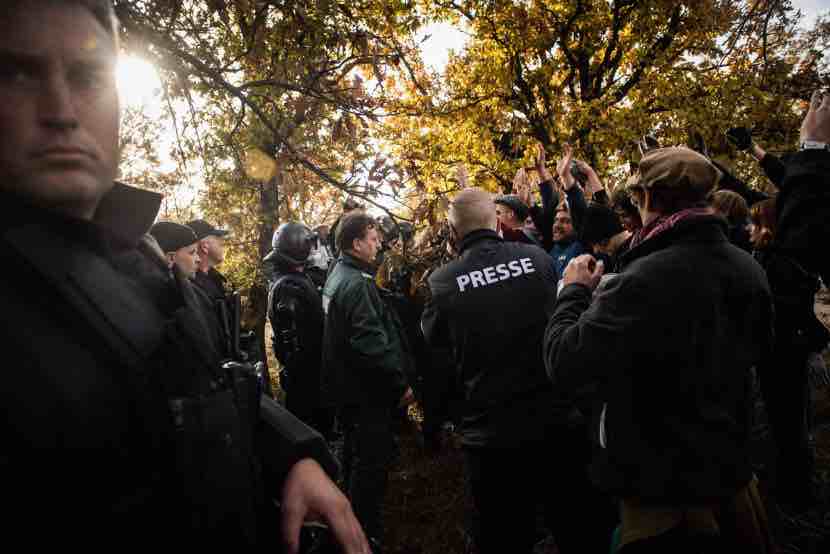
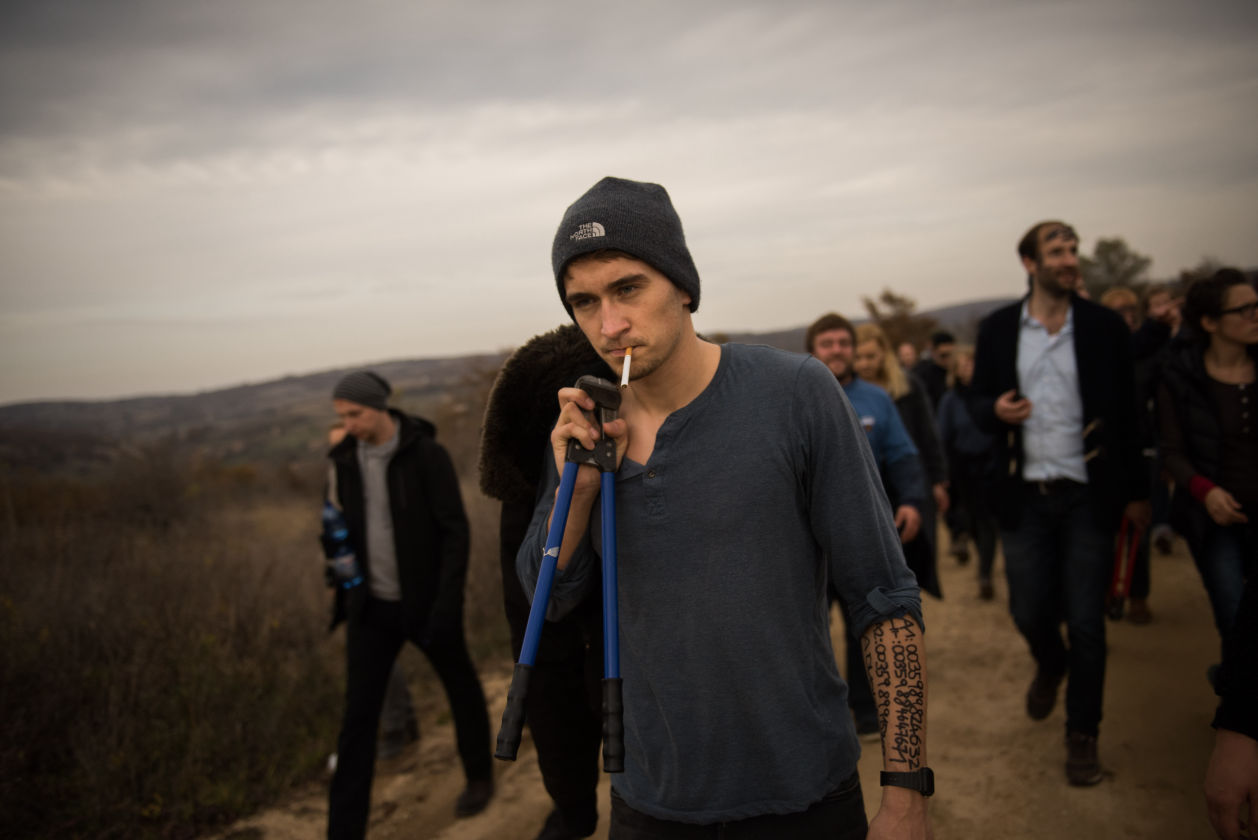

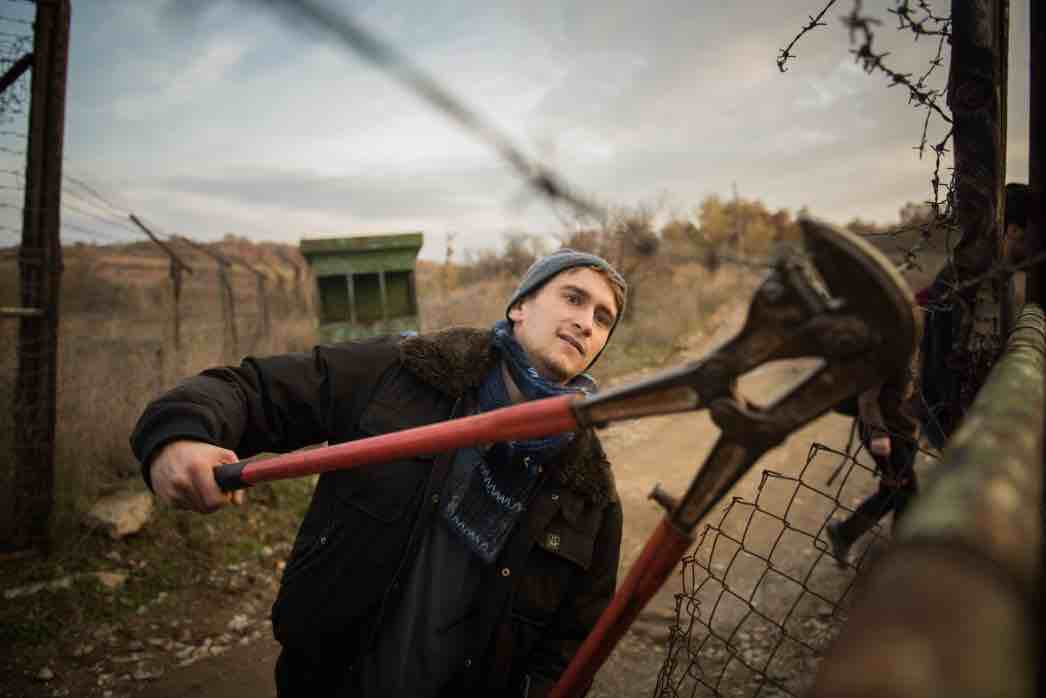
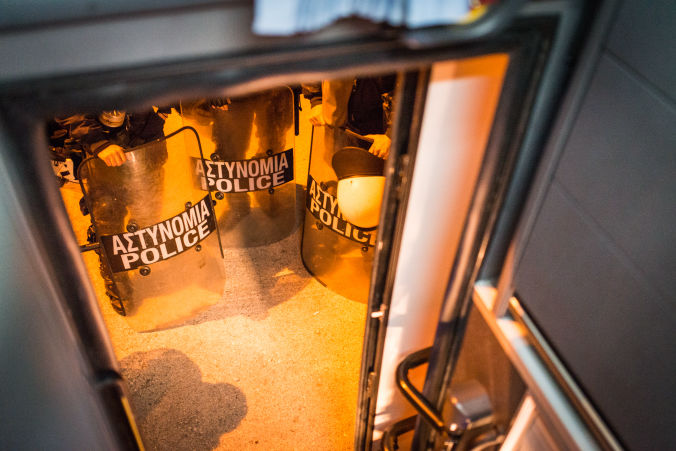
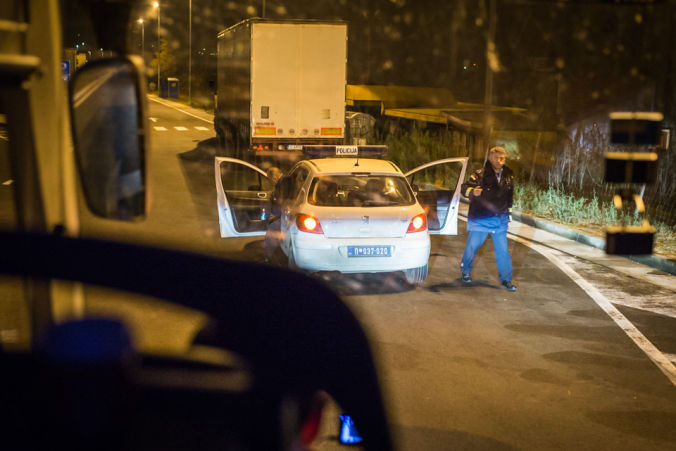
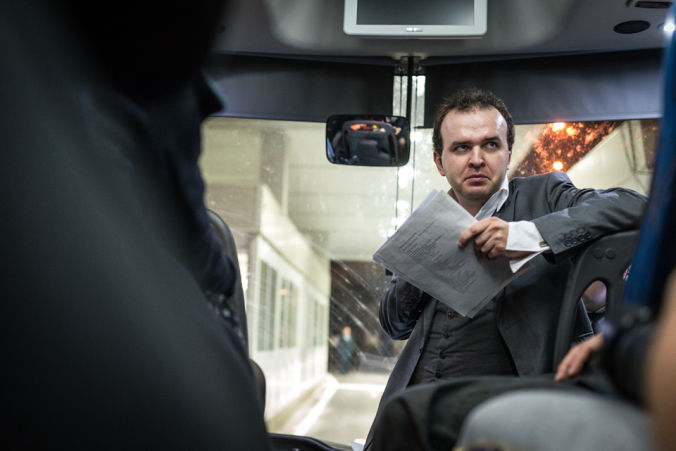
The Guardian Art group removes Berlin Wall memorial in border protest
DailyMail Berlin Wall crosses stolen before anniversary
Washington Post To some, the EU’s deadly border is the new Berlin Wall
BBC The mystery of the Berlin Wall's white crosses
fairplanet.org The dead are gone to nowness
Political Critique Topple The European Wall
International Business Times Berlin Wall Crosses Stolen to Protest EU Border Deaths
the local Refugee group steals Berlin Wall crosses, Stolen Berlin Wall memorial taken to Spain
salon.com Berlin Wall crosses stolen before anniversary
artnet news Collective Steals Berlin Wall Memorial Ahead of Anniversary
The European Magazine Heartache and Hot Dogs
alignmentfordignity The Center for Political Beauty: The Fall Of The European Fence Wall
artdaily Berlin Wall crosses stolen by pro-refugee activists to protest EU border deaths
ynetnews.com German activists remove remembrance for Berlin Wall victims
The last gate to Europe, Turkey’s border with Greece and Bulgaria, is closed. Since the Bulgarian government decided to build a so-called »containment facility«, there are no more paths to Europe for people in need that would not put their lives at risk. The picture shows the barbed wire fence at the Bulgarian-Turkish border which was built only two months before the 9 November 2014.
